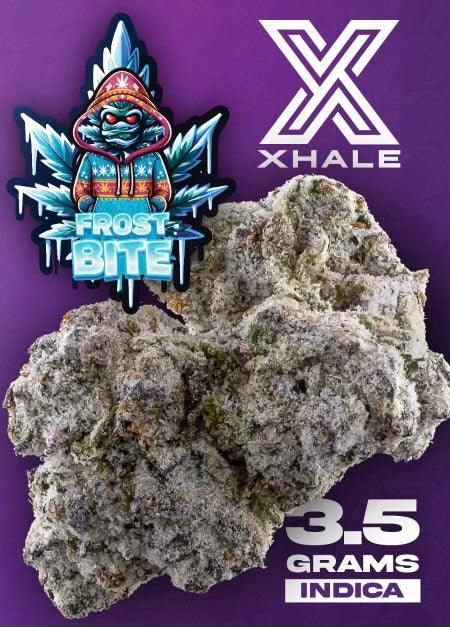
Delta-8 THC: A Comprehensive Guide to the Rising Star of the Cannabis World
In the expansive world of cannabinoids, Delta-9-tetrahydrocannabinol (Delta-9 THC) has been the most talked about, largely due to its psychoactive effects. However, a new star is emerging in the cannabis industry - Delta-8-tetrahydrocannabinol (Delta-8 THC). This lesser-known sibling of Delta-9 THC is gaining attention for its unique properties that set it apart from its infamous relative.
Delta-8 THC: An Overview
Delta-8 THC is a naturally occurring compound found in the cannabis plant. It's similar in structure to Delta-9 THC but differs slightly due to the location of a critical chemical bond. Whereas Delta-9 THC contains this bond on the 9th carbon chain, Delta-8 THC has it on the 8th, hence the name.
This small shift doesn't seem like much, but it significantly impacts the way the body interacts with the compound. Delta-8 THC produces similar effects to Delta-9 THC – such as pain relief, relaxation, and euphoria – but is typically less potent. This lower potency often results in a milder and more manageable experience, even for novice users.
Extraction and Availability
In its natural state, Delta-8 THC appears in very low concentrations, often less than 1% of the plant's total composition. This scarcity led to the initial lack of attention towards Delta-8 THC. It wasn't until advancements in extraction and conversion processes that it became a more prominent player in the cannabinoid market.
Delta-8 THC is now often derived from hemp plants, which are legal under the 2018 Farm Bill as long as they contain less than 0.3% Delta-9 THC. Through processes such as selective breeding, extraction, and refinement, manufacturers can produce significant amounts of Delta-8 THC from legal hemp.
Therapeutic Effects
Like its close relative, Delta-8 THC is believed to have several therapeutic effects. While scientific research is still in the early stages, anecdotal evidence and preliminary studies suggest that Delta-8 THC can help with pain and inflammation, nausea and vomiting, and anxiety.
Perhaps one of the most promising applications is in cancer treatment. A 1995 study published in Life Sciences showed that Delta-8 THC could reduce nausea and vomiting in children undergoing chemotherapy, with negligible side effects. Although this study's scale was small, it paved the way for further exploration of Delta-8 THC's potential benefits.
The Legal Landscape
Delta-8 THC occupies a somewhat gray area legally. While the 2018 Farm Bill legalized hemp and its derivatives, it did not specifically mention Delta-8 THC. This ambiguity has led to a variety of interpretations and enforcement levels across different states.
In some places, Delta-8 THC is treated similarly to CBD, with products widely available in stores and online. In others, it is considered illegal or controlled, in the same category as Delta-9 THC. This varying legality has created some confusion and inconsistency in the market, so it's crucial to understand your local laws before buying or using Delta-8 THC products.
Safety and Side Effects
Like any other compound, Delta-8 THC is not without its potential side effects. Some users report dry mouth, red eyes, short-term memory issues, and appetite changes. As with Delta-9 THC, it's also possible to experience feelings of paranoia or anxiety, especially at higher doses.
However, because Delta-8 THC is less potent, these side effects are often milder than with Delta-9 THC. As always, it's best to start low and go slow, particularly if you're new to Delta-8 THC or cannabis in general.
Future of Delta-8 THC
As with any burgeoning industry, the future of Delta-8 THC is both promising and uncertain. The increasing interest in its therapeutic potential and manageable psychoactive effects suggest a bright future. However, the murky legal landscape and lack of comprehensive scientific research could hamper its growth.
In the coming years, it will be crucial to see further studies exploring Delta-8 THC's safety, efficacy, and potential benefits. The demand for clear, consistent legislation will also likely grow as consumers and businesses seek stability and certainty.
In the end, Delta-8 THC embodies the exciting potential and complexities of the cannabis industry. As we continue to explore and understand this unique compound, we may well find that it holds a critical place in the ever-evolving world of cannabinoids.
Whether you're a cannabis enthusiast, a health-conscious consumer, or just curious about the latest trends, Delta-8 THC offers an intriguing and accessible introduction to the diverse world of cannabinoids. Its unique blend of therapeutic benefits and milder psychoactive effects could make it a game-changer in the industry. However, like all things, it should be used responsibly and with a full understanding of its potential effects. The story of Delta-8 THC is still being written, and it's one worth following.
Conclusion
Delta-8 THC offers an exciting glimpse into the untapped potential of the cannabis plant. Though we're only at the beginning of understanding this unique cannabinoid, early signs point to a promising future. From its therapeutic benefits to its milder psychoactive effects, Delta-8 THC is poised to carve out its niche in the cannabis world.
While there's much to be excited about, it's essential to approach Delta-8 THC (and indeed, any cannabinoid) with care and respect for its potency. Remember, while the research is ongoing, initial studies and anecdotal evidence suggest that Delta-8 THC is most effective and enjoyable when used responsibly.
The journey of Delta-8 THC from obscurity to the limelight is a testament to the transformative power of scientific research and innovation. As we delve deeper into the cannabis plant and its myriad compounds, who knows what other treasures we'll uncover?




